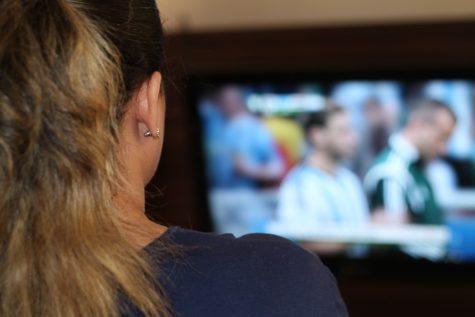STATE COLLEGE, Pa. — Need another reason to unplug? Seeing emotionally-charged tweets about a particular TV show on social media can bias our opinion toward that show, a new study finds.
Researchers at Penn State University recruited 196 participants to watch a 10-minute clip of the pilot episode of the NBC hit show “30 Rock.” During their viewing, some participants were exposed to positive social media messages (e.g., “I love this show”), while others saw tweets that indicated disapproval (e.g., “#30rock= awful”).
The messages were placed at two points during the clip: two minutes in and nine minutes in.

Participants who saw the negative tweets were not only more likely to express that their friends would not enjoy the clip, but they were more likely to dislike it themselves.
“People who saw the negative tweets were less likely to enjoy the program because they thought other people didn’t like it,” explains study author S. Shyam Sundar, distinguished professor of communications and co-director of the Media Effects Research Laboratory at Penn State, in a press release. “It was directly affected by what they thought others thought.”
The researchers identified this as being a bandwagon effect, that is, the viewers adopted the same outlook on the show as the tweeters, regardless of who they were. While the bandwagon effect is rather common among social media users, it was stronger than expected in this study, the researchers noted.
“We had expected that negative comments would only affect certain types of viewers who are predisposed to follow the crowd, but surprisingly, these findings were quite consistent across a variety of different personality types,” says T. Franklin Waddell, one of the study’s lead researchers and an assistant professor of journalism at the University of Florida.
To be clear, the opposite effect was demonstrated among viewers who saw positive tweets during their viewing: they thought more positively of 30 Rock.
However, negative comments generally left a stronger impression on a given viewer, likely due to our brain’s tendency toward negativity bias.
The study’s results also prove that it doesn’t take too much to sway a viewer’s outlook on a show.
“While you might only see two or three comments during a television program, this small handful of comments is enough for viewers to automatically make judgments about how viewers as a whole feel towards programming,” says Waddell.
Future inquiry could look into whether the identification of particular viewers influences the bandwagon effect, the researchers said.
The study’s findings were published in May in the Journal of Broadcasting and Electronic Media.
